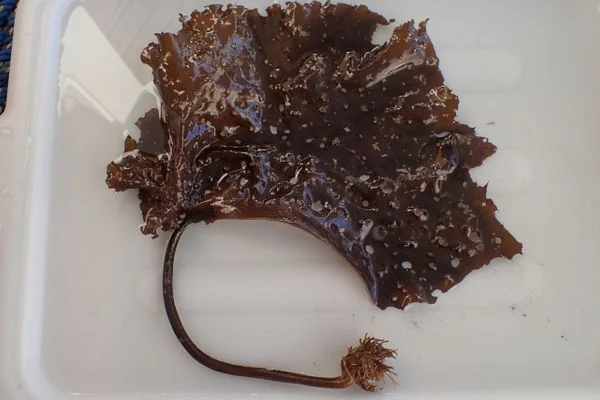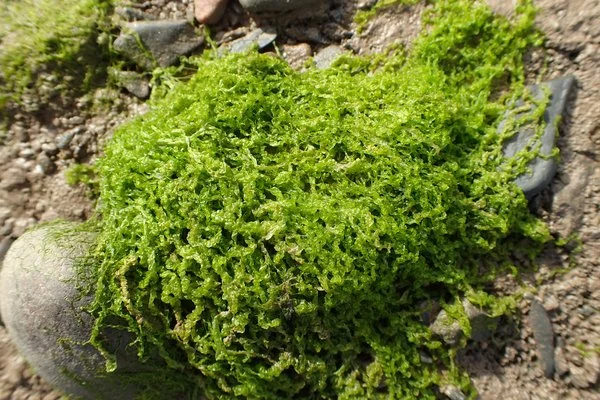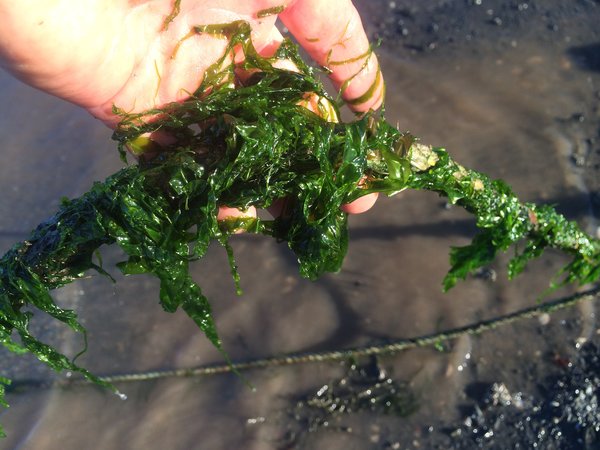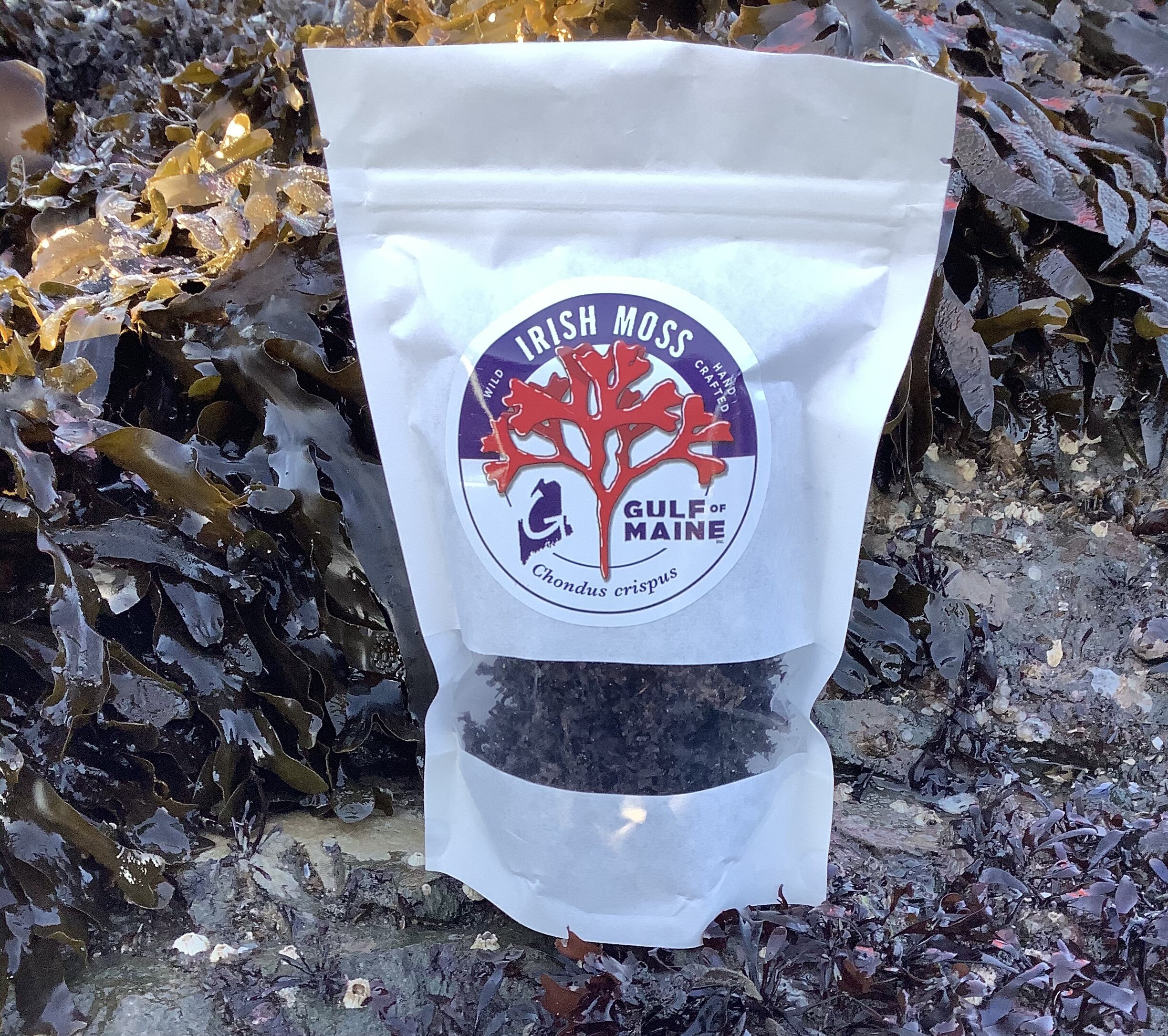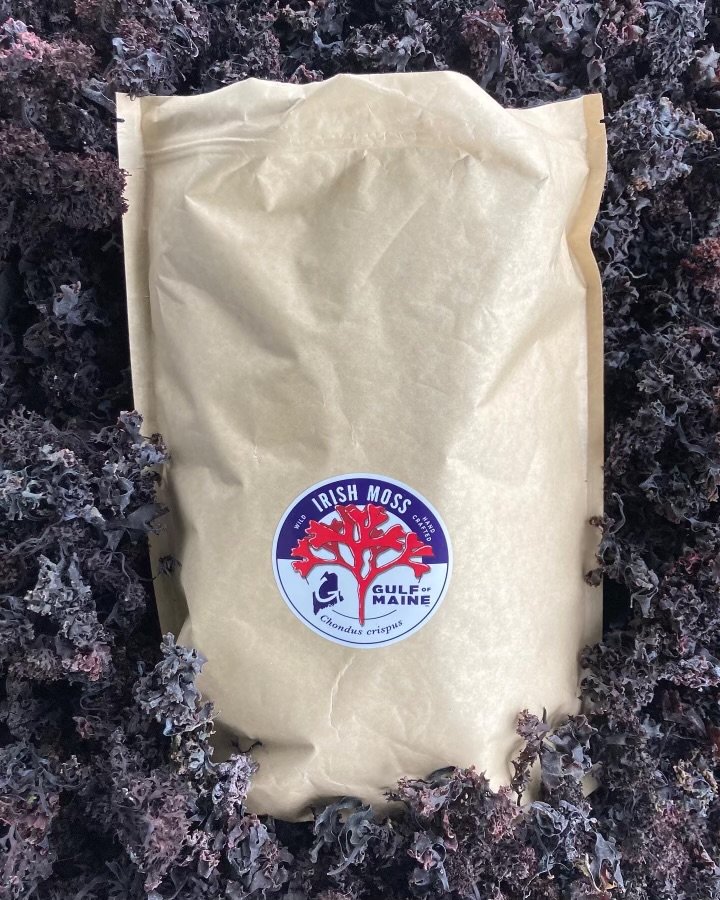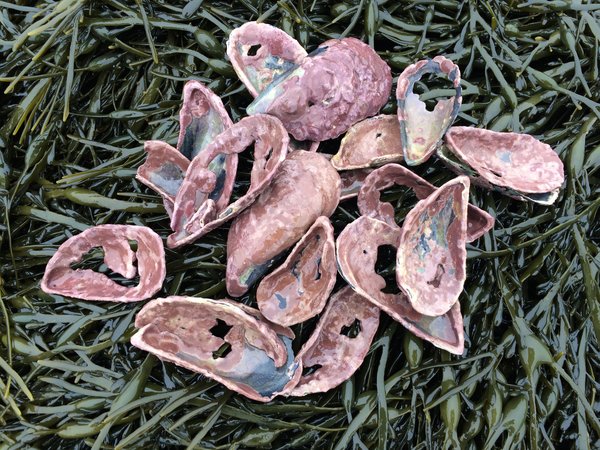Sea Colander (Agarum cribosum)


Sea Colander (Agarum cribosum)
Common name: sea colander kelp, locally called shot-gun kelp by sea urchin fishermen
Scientific name: Agarum cribosum
Locations: sub-tidal on low tide rocks & ledges, likes lots of current and water flow
Seasonality: available year round, best where the sea urchins haven't grazed it down
Colors: dark brown
Size: range from 12" - 24" long
Collected: by hand
Quantity: 1 pint volume (1 - 2 plants)
Tidepool Tim says, “Sea colander is best collected on the full moon tides. The curious look of this kelp makes sense. It lives in the fastest flowing water and in order to reduce the effect of the tidal current, it has somehow evolved lots of little holes or perforations in the frond or blade. Sea urchin draggers and divers locally call it "shotgun" kelp. Wherever there is a good bed of sea colander - they are sure to find lots of sea urchins that are full of uni or eggs; this earns the fishermen the best pay for their product.
Horse mussels also like to live in high current areas. Often sea colander kelp will grow and form its holdfast on a horse mussel. The mussel uses its very strong byssal threads to hang onto the seafloor and not drift away. As the kelp grows in size, eventually the horse mussel can no longer stand the pull of the tidal current and it breaks loose. This ends up being the 'kiss of death' for both the kelp and the mussel as they end up washed onto a beach where they dry up in the sun. No worries - crabs, sea fleas, and isopods will recycle the dead seaweed and mussel and keep the nutrients flowing through the food chain.”


